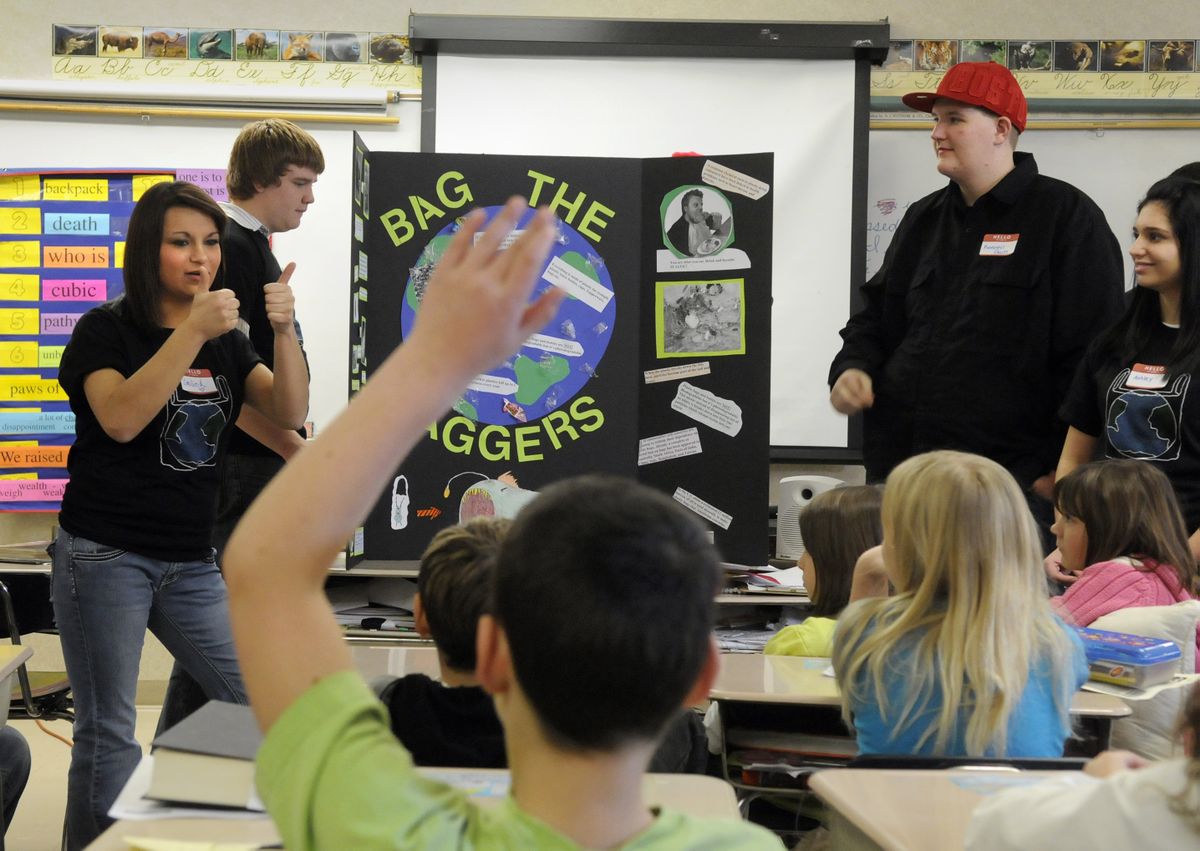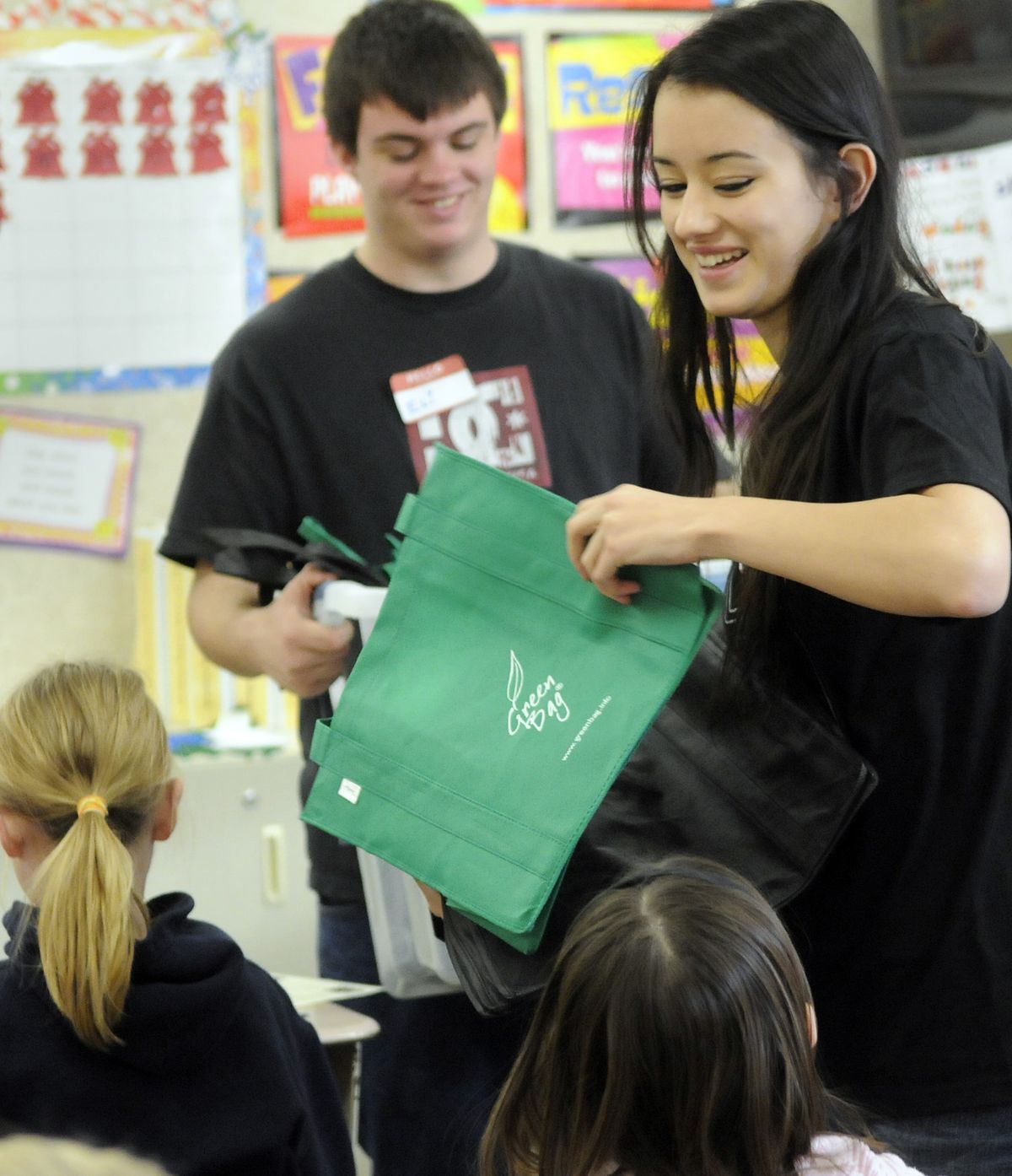Sharing a greener option to plastic
M.E.A.D. Alternative assignment turns into educational passion
Emille Albritton, left, of M.E.A.D. Alternative School gives two thumbs up to Browne Elementary School during a presentation about using cloth shopping bags. Other M.E.A.D. Alternative students are Kevin Dennehy, back left, Keenen Davis, right, and Ashley Keen, far right. (Photos by DAN PELLE / The Spokesman-Review)
Sometimes a regular class assignment takes on a life all of its own. That’s what happened at M.E.A.D. Alternative High School a couple of weeks ago, when students were asked to do some research on plastic bags, their impact on the environment and recycling.
“I guess we all just got into it,” said Ashley Keen, 17. “And now we are doing all this.” The reusable bag project has taken most of the students’ time lately, and Keen and about 25 other students were at the Saranac Building on West Main Avenue Wednesday, to hang informational panels they’d produced in the lobby there.
The day before, other students had visited Browne Elementary School, to talk to students about why reusing plastic bags is important and to hand out reusable shopping bags. They’ve visited six elementary and middle schools and they are taking appointments for the new year.
“We are reaching out to the younger kids because they are the next generation,” said Keen, explaining that the reusable canvas bags being handed out have been donated by local businesses.
“I think we brought in 400 canvas bags,” said Lisa Grishko, 15. “We’re hoping that by hitting the younger kids, they can talk to their parents. It can be hard to change adults; the kids are much more open.”
After the plastic presentation, students get a little quiz about plastic recycling and the environmental impact plastic has on animals, oceans and landfills.
“I’m so impressed, the elementary kids know almost all the answers,” said Grishko. “And they have great questions.”
The students from M.E.A.D. Alternative School have spent about four weeks working on the reusable bag project.
“In the beginning we kind of thought, plastic? Who cares? But the more we got into it the more we wanted to find out,” Keen said.
Doing research the students uncovered many facts that startled and surprised them: it’s estimated that only 2 percent of all plastic products are recycled, and even when recycled, some of the plastic ends up in landfills; the great Pacific garbage island, which floats in the Pacific Ocean, is now twice as big as Texas; by some estimates there are now six pieces of plastic for every one piece of food – like plankton – in the ocean.
Students at M.E.A.D. Alternative High School often work on projects instead of regular class work.
“The stereotype is that we are bad kids,” said Keen, “but we’re not. We just learn in a different way. We do lots of volunteer work, too.”
Grishko, Keen and their classmates created poster boards and videos based on this research, and they are hoping to take their presentation before the Spokane City Council.
“We have created T-shirts and buttons, and we’re trying to crochet things out of the plastic bags,” said Grishko, showing off a little purse. “But we’re not selling anything. It’s really about awareness and that’s also why we want to go before the City Council.”

